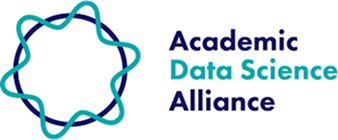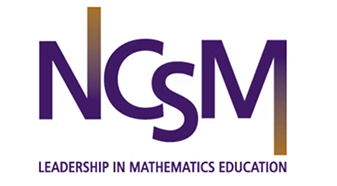Clear design for user interpretation
Identify conventional components and best practices of data visualization from a user-centered or audience perspective.
K–2 Competencies
Identify and describe the parts of bar graphs and picture graphs and what they communicate.
Classroom resources
Data Science Starter Kit Module 5: Telling the Story - Visualization and Communication
Welcome to the culminating skill of data science—communicating your findings effectively so others can understand and act on them! This module focuses on how to create clear visualizations and compelling narratives that make data accessible and meaningful to different audiences.🔗
Visualization and Communication isn’t about creating fancy graphics or impressive presentations. It’s about developing the empathy and clarity to think, “How can I help others understand what this data means and why it matters to them?” The best data science in the world is useless if it can’t be understood and applied by the people who need it.
3–5 Competencies
Identify and support how different colors and/or patterns can be used in visualizations to represent different groups/categories/scales in the data.
Reliably use the parts (e.g., titles, labels, legends, colors) of bar graphs, picture graphs, and line graphs.
Classroom resources
Data Science Starter Kit Module 5: Telling the Story - Visualization and Communication
Welcome to the culminating skill of data science—communicating your findings effectively so others can understand and act on them! This module focuses on how to create clear visualizations and compelling narratives that make data accessible and meaningful to different audiences.🔗
Visualization and Communication isn’t about creating fancy graphics or impressive presentations. It’s about developing the empathy and clarity to think, “How can I help others understand what this data means and why it matters to them?” The best data science in the world is useless if it can’t be understood and applied by the people who need it.
6–8 Competencies
Clearly label a data visualization to demonstrate what the data is, what the unit of measure is, and where it came from.
Choose or create a representation and color palette for one or two-variable data, and explain or defend their choice.
Classroom resources
Data Science Starter Kit Module 5: Telling the Story - Visualization and Communication
Welcome to the culminating skill of data science—communicating your findings effectively so others can understand and act on them! This module focuses on how to create clear visualizations and compelling narratives that make data accessible and meaningful to different audiences.🔗
Visualization and Communication isn’t about creating fancy graphics or impressive presentations. It’s about developing the empathy and clarity to think, “How can I help others understand what this data means and why it matters to them?” The best data science in the world is useless if it can’t be understood and applied by the people who need it.
9–10 Competencies
Properly cite data sources near visuals to ensure transparency and credibility.
Recognize how complementary or contrasting features (e.g., color, texture, shape) can be used to represent dichotomous ideas in data visualizations.
Describe how human color/contrast perception varies and apply this to select accessible data visualization palettes.
Classroom resources
Data Science Starter Kit Module 5: Telling the Story - Visualization and Communication
Welcome to the culminating skill of data science—communicating your findings effectively so others can understand and act on them! This module focuses on how to create clear visualizations and compelling narratives that make data accessible and meaningful to different audiences.🔗
Visualization and Communication isn’t about creating fancy graphics or impressive presentations. It’s about developing the empathy and clarity to think, “How can I help others understand what this data means and why it matters to them?” The best data science in the world is useless if it can’t be understood and applied by the people who need it.
11–12 Competencies
Provide context for the data to help viewers understand the background and implications.
Recognize how color theory (e.g., tint, saturation, shading) can be used to represent continuously scaled data (e.g., darker color =higher concentration of occurrence).
Recognize that we have culturally-influenced or domain-specific ways of using and interpreting chart elements. Consider the conventions that are known to or expected by your audience when developing data visualizations.
Classroom resources
Data Science Starter Kit Module 5: Telling the Story - Visualization and Communication
Welcome to the culminating skill of data science—communicating your findings effectively so others can understand and act on them! This module focuses on how to create clear visualizations and compelling narratives that make data accessible and meaningful to different audiences.🔗
Visualization and Communication isn’t about creating fancy graphics or impressive presentations. It’s about developing the empathy and clarity to think, “How can I help others understand what this data means and why it matters to them?” The best data science in the world is useless if it can’t be understood and applied by the people who need it.
Advanced Competencies
Apply design principles such as balance, emphasis, and simplicity to make visualizations clear and engaging.
Understanding the basics of interactive visualizations (e.g., tooltips, zooming) and their advantages in data exploration.
Classroom resources
Support other teachers by sharing a resource
Do you have a lesson plan, video, or tip that could help others teaching this topic?
Share feedback on the Learning Progressions
Your feedback helps us improve these progressions for teachers around the world. Thank you!
Share feedback on the Learning Progressions
Your feedback helps us improve these progressions for teachers around the world. Thank you!
Share a classroom resource
Suggesting a resource helps students around the world learn essential data science skills.









.png)














